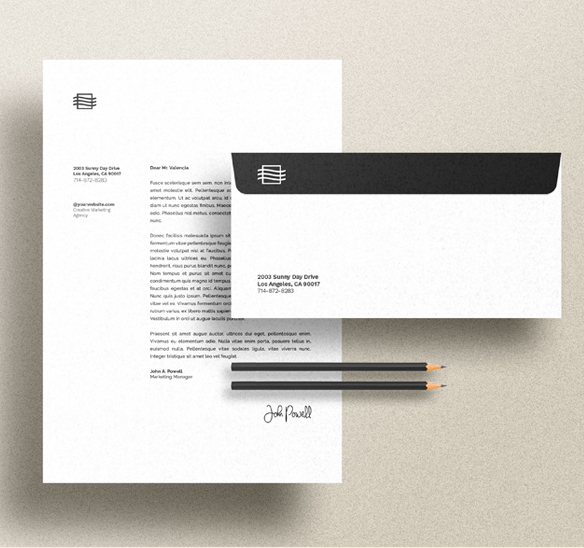 Interview TipsInterviews are stressful at the best of times. Whether it’s your first job or you’ve had a long and varied career, interviews can always catch you out if you aren’t fully prepared. So, to get you ready or refresh your skills, here are a few simple pointers to ensure you make a great impression…
Interview TipsInterviews are stressful at the best of times. Whether it’s your first job or you’ve had a long and varied career, interviews can always catch you out if you aren’t fully prepared. So, to get you ready or refresh your skills, here are a few simple pointers to ensure you make a great impression…
Do your researchAs part of your interview you will be asked specific questions about the organisation, as well as the role. To succeed in this part of your interview, you need to do your homework:
As you do this research, try also to think about how your skills and personality fit with theirs.
Plan the basicsThe worst outcome from an interview is failure because of a simple error like arriving late. Get the basics right and make sure you:
Plan for potential questionsThe questions you get asked will vary greatly depending on the industry, the sector and the role. But certain questions are inevitable. You’ll be asked about your previous experience. You’ll be asked about your skills, your current role, and why you’re the right person for the job. Try to prepare for the questions you’re likely to be asked, even if you can’t prepare for the unpredictable ones.
Know your CVYour CV has got you the interview, so make sure you actually remember what's written on it – you'd be surprised by how many people don't! Read and re-read it before your interview so that you know it inside out – this shouldn't be difficult if it's a true reflection of your achievements and past experience. Your interviewer will use your CV as a guide for the interview, so it really matters that you know it and believe in it.
Be positive and politeAs soon as you enter the building, be polite and engaging with everyone you encounter. Receptionists will tell interviewers if they think you’ve been rude. Then, once you’re settled, try to be positive in your body language. Don’t slouch or lean back too much – have good, solid posture, and show the interviewer that you’re confident.
Be an attentive listener too. When the interviewer is talking, it’s really important that you engage and respond in a positive way. You’re not just being tested for your suitability – this is about your personality too.
Ask questionsIt is likely you will be asked whether you have any questions at the end of the interview. It’s good to prepare a few just in case but be reactive too – if something has piqued your interest in the interview, ask about it. Asking questions is important because it shows you care and that you have a real interest in the company and the role.
Let your personality shineInterviews can be incredibly frustrating because, for all the preparation you do, decisions can often come down to that imperceptible fact of just ‘clicking’ with someone or not. There isn’t much you can do to prepare for something like that. But what you can do is ensure that you show the best of your personality.
That means not overthinking your preparation too. To show who you really are, you’ll have to be confident enough to react, engage and improvise. Overly prepared interviewees can often seem a little stiff. Interviewers leave not knowing if they saw the real person. So, giving yourself the chance to be yourself can really make all the difference.
 Writing a Cover LetterA cover letter is an introduction to you and your CV. It’s therefore the first impression an employer has of you. That makes it absolutely vital for your prospects of landing any job. Here’s how you can ensure you write cover letters that make your first impression a good one.
Short and simpleIdeally you should keep a cover letter to no more than one page in length. If it can be shorter than this, even better. If you can’t sell yourself in half a page, chances are you can’t with far more space.
Writing a Cover LetterA cover letter is an introduction to you and your CV. It’s therefore the first impression an employer has of you. That makes it absolutely vital for your prospects of landing any job. Here’s how you can ensure you write cover letters that make your first impression a good one.
Short and simpleIdeally you should keep a cover letter to no more than one page in length. If it can be shorter than this, even better. If you can’t sell yourself in half a page, chances are you can’t with far more space.
It’s also smart to include your cover letter in the body of an email, as attachments can sometimes be lost in transit.
Get the basics rightThere are a few simple things you should always do in a cover letter but that are sometimes overlooked. They include:
Nail the ‘why’The key to a good cover letter is nailing the ‘why’ – making it crystal clear why you’re perfect for this role.To do this, you need to show that you understand the requirements of the role, and that your experience and skills perfectly match these requirements.
It sounds simple, but you need to explain this in concise and punchy fashion. So get to the point quickly, and be specific – name the key skills and experiences that prove you are the right person for the job.
Flatter themIt’s also important to explain what attracted you to apply. Remember that this company will be very proud of what they do, and very excited about hiring someone equally exciting. So, show that you care about what they do, and that you’ve done your research on them. You don’t need to be overly complimentary but showing your interest in them is always a wise move.
Don’t be negative about leavingWhen explaining your current position and why you’re now looking elsewhere, it’s vital that you frame it in a positive way. Complaining about your current role will actually be a concern for a prospective employer – they will worry that history could repeat itself. Instead, explain how this role represents the next step in your career – show them that you’re ambitious.
Spend lots of time proofingIt’s remarkable how often cover letters contain small grammatical errors.Think of it this way: if this position has lots of applications, a recruiter might not be looking for reasons to progress with someone, but reasons to dismiss a CV. And if you allow a mistake to slip through the net, you’ve given them a simple reason to dismiss yours.
Check and re-check your cover letter and get someone else to check too. Keep your language and grammar simple to avoid potential pitfalls. Don’t let all your hard work be put to waste.
 CV Writing TipsThe importance of your CV can’t be underestimated. Every day, employers and recruiters scan through stacks of them, making snap decisions about people purely based on that single document. If you want to ensure yours isn’t dismissed, it has to grab their attention, and quickly.
CV Writing TipsThe importance of your CV can’t be underestimated. Every day, employers and recruiters scan through stacks of them, making snap decisions about people purely based on that single document. If you want to ensure yours isn’t dismissed, it has to grab their attention, and quickly.
But how? Follow our tips, and you’ll create a CV that ensures you don’t fall at the first recruitment hurdle.
Make it easy to scanIf recruiters and HR staff are scanning CVs rather, it’s your job to make your CV easy to scan. Writing in a way that’s ‘scannable’ is simple enough, and just requires a few considerations.
Try to imagine that someone is reading your CV on a screen, rather than printed out. On a screen, we all read differently. We have multiple tabs open, and our attention is fickle.
So, make your key information as visible as possible.
Make your personal statement punchyYour personal statement should be right at the top of your CV, and it’s probably the most important section. It needs to be short – perhaps no more than 100 words at the most. But it also has to be punchy – you need to make whoever reads this want to read on.
Think of your biggest skills and achievements, and try to boil them down to whatever will make the biggest impact. Use positive language, show how ambitious you are, and above all, make sure it’s grammatically perfect.
A personal statement with a spelling mistake is the easiest way to get rejected.
Make your work experience interestingAll too often, the work experience section of a CV is a dull and repetitive list that loses the reader’s focus. You can combat this by drawing out specific achievements and skills you developed. And specificity is the key.
If you are a high-flying salesperson, don’t just say it – prove it. Refer to an award or some sales figures that put your achievements into a context that’s meaningful.
Make it made to measureFor all kinds of reasons tailoring your CV for every job you apply for makes a big difference. Firstly, recruiters and HR employees will recognise when you’ve customised your CV, and they’ll appreciate it. It shows a level of effort and commitment that goes a long way.
Secondly, it gives you an opportunity to promote the skills and experience you have that are relevant to the job. You re-jig it all accordingly, and make sure they don’t miss the stuff that makes you perfect for the job.
And finally, it allows you to remove anything that you think might detract from your employability for this role. This is your advert – and you get to choose how best to showcase yourself.
Make your language simple Candidates often fall into the trap of trying to use flamboyant and complex language, thinking it might impress their prospective employer. But it rarely works.
Instead, try to: Use language that makes your point in the clearest possible way – complex language only increases the possibility of confusion
CVs have to appear current and up-to-date – it’s a minimum requirement. Check through carefully for new experience, or anything that is starting to feel too old and irrelevant. As well as adding new content, don’t be afraid to remove anything old.
Then check, and re-check, for accuracy. Spelling, grammar, dates, formatting – you can’t miss a thing. If the role you’re applying for is competitive, the margin for error will be small.
Make the most of digital tools The digital age has transformed the hiring process – and the way you craft your CV is no exception.
So, when you’re writing or editing your CV, always remember to:
 Virtual Interview TipsThe pandemic this year has turned the normal job search and interview process upside down. Virtual interviews were common for early stages but are now the new normal for all stages of the hiring process. So it's important that you're prepared and have the necessary skills to make a fantastic, virtual first impression. Here are some initial tips.
Prepare the settingThink about where you are going to have your interview – your bedroom or home office? Wherever you choose, check the lighting in the room, it must be right – try to avoid direct light sources or bright objects behind you as this will create a shadowy silhouette. If you can elevate your laptop to avoid staring down into the camera and position yourself at a table, against a plain, neutral background. Make sure that the background is clear and not distracting, the interviewer’s attention needs to be firmly on you. Once you have set up your ‘interview room’, exclude children, pets etc from the room for the duration of the interview. Let everyone in the household know ahead of time that you have an interview, and then close the door to keep out any external noise.
Test itThe day before or as a minimum and hour or so before the interview, test audio and camera well in advance of the interview and again 15 minutes before start. Practice by recording a video of yourself answering questions, it will seem odd but great to pick up on any distractions/ body language in advance rather than being put off by seeing yourself the first time in the live interview.
ResearchMake sure to fully research the company in depth, know who your interviewer is and have reviewed the job specification in full. Review key competencies and ensure that you have practiced answering behavioural questions using specific examples using the STAR method (Situation/Task/Action/Result). Attach post-it notes around the laptop screen with prompts & questions you wish to ask the interviewer – make sure that these are out of sight of the camera, but positioned so that you can review without looking down or obviously breaking off eye contact with the interviewer. It is also good to have a copy of you CV to hand.
Turn up earlyAct as you would for a physical interview and ensure that you are ready to start c10-15 minutes before the start time of the interview. Make sure to dress for the job you want – this will also help to put you in the right professional ‘mindset’ for the interview. Have pen & paper at hand and a have a glass of water next to you.
Minimise distractionsPut a ‘do not disturb’ sign on the door, close all other applications on your laptop and silence your mobile phone/ disable vibration. It is important to give the interviewer your attention and maintain eye contact, as you would normally so stay engaged. Despite the best preparations there may be technology issues – stay calm and patient. Have the phone number of the interviewer (and your Morgan Hunt recruiter) in case video connection is lost or it does not start on time.
Follow upRemember to call your recruiter at Morgan Hunt with feedback as soon as the interview concludes so that they can pass on your thoughts to the interviewer as quickly as possible, this will provide a positive impression with the prospective employer.
Virtual Interview TipsThe pandemic this year has turned the normal job search and interview process upside down. Virtual interviews were common for early stages but are now the new normal for all stages of the hiring process. So it's important that you're prepared and have the necessary skills to make a fantastic, virtual first impression. Here are some initial tips.
Prepare the settingThink about where you are going to have your interview – your bedroom or home office? Wherever you choose, check the lighting in the room, it must be right – try to avoid direct light sources or bright objects behind you as this will create a shadowy silhouette. If you can elevate your laptop to avoid staring down into the camera and position yourself at a table, against a plain, neutral background. Make sure that the background is clear and not distracting, the interviewer’s attention needs to be firmly on you. Once you have set up your ‘interview room’, exclude children, pets etc from the room for the duration of the interview. Let everyone in the household know ahead of time that you have an interview, and then close the door to keep out any external noise.
Test itThe day before or as a minimum and hour or so before the interview, test audio and camera well in advance of the interview and again 15 minutes before start. Practice by recording a video of yourself answering questions, it will seem odd but great to pick up on any distractions/ body language in advance rather than being put off by seeing yourself the first time in the live interview.
ResearchMake sure to fully research the company in depth, know who your interviewer is and have reviewed the job specification in full. Review key competencies and ensure that you have practiced answering behavioural questions using specific examples using the STAR method (Situation/Task/Action/Result). Attach post-it notes around the laptop screen with prompts & questions you wish to ask the interviewer – make sure that these are out of sight of the camera, but positioned so that you can review without looking down or obviously breaking off eye contact with the interviewer. It is also good to have a copy of you CV to hand.
Turn up earlyAct as you would for a physical interview and ensure that you are ready to start c10-15 minutes before the start time of the interview. Make sure to dress for the job you want – this will also help to put you in the right professional ‘mindset’ for the interview. Have pen & paper at hand and a have a glass of water next to you.
Minimise distractionsPut a ‘do not disturb’ sign on the door, close all other applications on your laptop and silence your mobile phone/ disable vibration. It is important to give the interviewer your attention and maintain eye contact, as you would normally so stay engaged. Despite the best preparations there may be technology issues – stay calm and patient. Have the phone number of the interviewer (and your Morgan Hunt recruiter) in case video connection is lost or it does not start on time.
Follow upRemember to call your recruiter at Morgan Hunt with feedback as soon as the interview concludes so that they can pass on your thoughts to the interviewer as quickly as possible, this will provide a positive impression with the prospective employer.
It is likely video interviewing will continue to grow in usage over the coming months, so it is useful to get as much experience as possible which will help you establish your own style over this format.